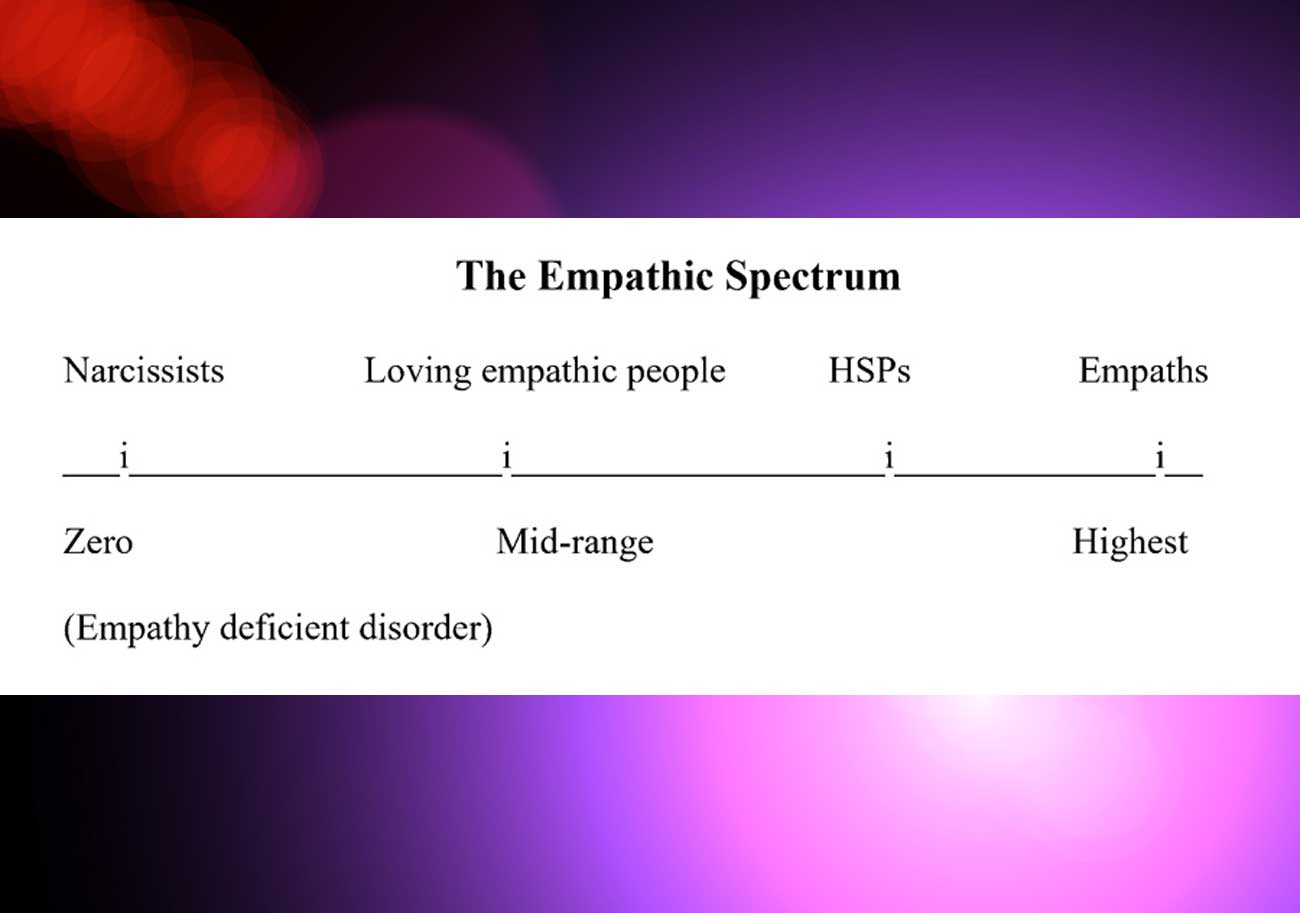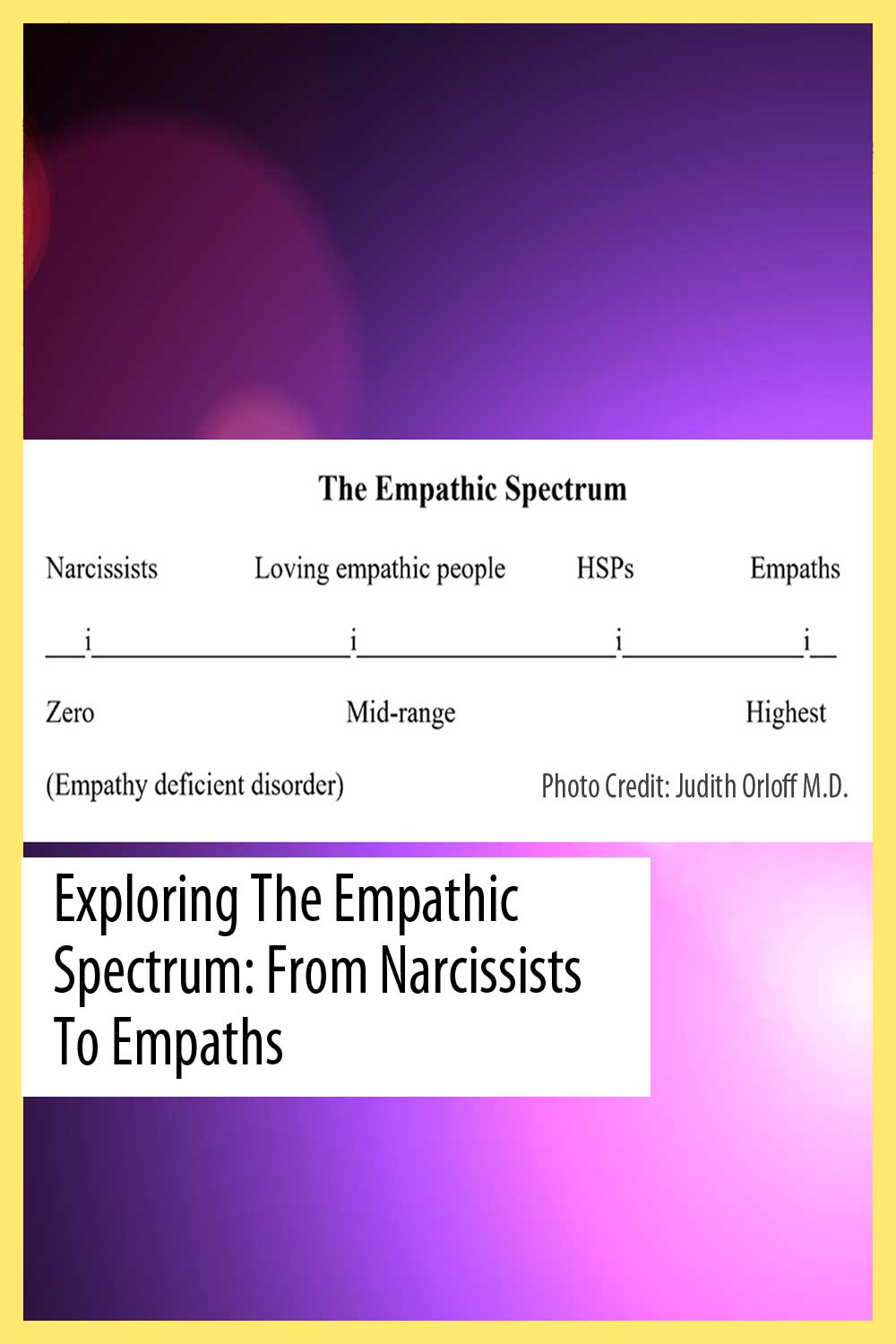
Exploring the Empathic Spectrum: From Narcissists to Empaths
Photo Credit: Judith Orloff M.D.
The human psyche is a vast and intricate landscape, filled with a rich tapestry of personalities and traits. Among the myriad of characteristics, two polar opposites stand out: narcissists and empaths. These terms have become buzzwords in psychology and self-help circles, representing two ends of the empathic spectrum. In this article, we’ll embark on a journey to understand this spectrum, delving into the traits, behaviors, and dynamics that define narcissists and empaths. By exploring this spectrum, we can gain valuable insights into the human condition and the complex interplay between these contrasting personality types.
1. The Narcissistic Personality
Understanding Narcissism
Narcissism, often associated with self-centeredness and a lack of empathy, is a personality trait that can manifest to varying degrees. We’ll explore the core characteristics of narcissistic individuals, including an inflated sense of self-importance, a constant need for admiration, and a lack of genuine empathy. Understanding these traits can shed light on the motivations and behaviors of narcissists.
Causes and Patterns
Delve into the origins of narcissistic traits, exploring potential childhood experiences and environmental factors that contribute to the development of narcissistic personalities. We’ll also examine common patterns of behavior and relationships that narcissists tend to exhibit.
Impact on Relationships
Narcissists often struggle in their interpersonal relationships due to their self-centered nature. Discover the challenges faced by those in relationships with narcissists and explore strategies for dealing with narcissistic individuals.
2. The Empathic Personality
Understanding Empathy
Empathy, on the other hand, is a quality characterized by the ability to understand and share the feelings of others. Empaths are highly attuned to the emotions and needs of those around them. We’ll delve into the traits and behaviors that define empathic individuals, including their deep compassion and sensitivity.
Empathy in Action
Explore how empaths navigate their relationships and interactions with others. Learn about the strengths and challenges associated with being an empath and how they contribute positively to their communities.
The Empath-Narcissist Dynamic
One of the most intriguing aspects of the empathic spectrum is the dynamic between empaths and narcissists. Discover why empaths often find themselves drawn to narcissists and how this complex interplay can lead to both fulfillment and strife.
3. Finding Balance and Understanding
Balancing these extreme ends of the empathic spectrum can be a delicate task. Learn how individuals with narcissistic traits can develop greater empathy and self-awareness, while empaths can set healthy boundaries and avoid emotional burnout.
Conclusion
The empathic spectrum, spanning from narcissists to empaths, offers a fascinating window into the intricacies of human behavior and interaction. By exploring the traits, behaviors, and dynamics that define these personalities, we can gain a deeper understanding of ourselves and those around us. Whether you’re seeking to improve your relationships, enhance your self-awareness, or simply explore the complexities of human nature, this exploration of the empathic spectrum provides valuable insights into the diversity of the human experience.

Exploring the Empathic Spectrum: From Narcissists to Empaths
Medical Advice Disclaimer
DISCLAIMER: THIS WEBSITE DOES NOT PROVIDE MEDICAL ADVICE
I am not a doctor. The information, including but not limited to, text, graphics, images and other material contained on this website are for informational purposes only. No material on this site is intended to be a substitute for professional medical advice, diagnosis or treatment. Always seek the advice of your physician or other qualified health care provider with any questions you may have regarding a medical condition or treatment and before undertaking a new health care regimen, and never disregard professional medical advice or delay in seeking it because of something you have read on this website.



